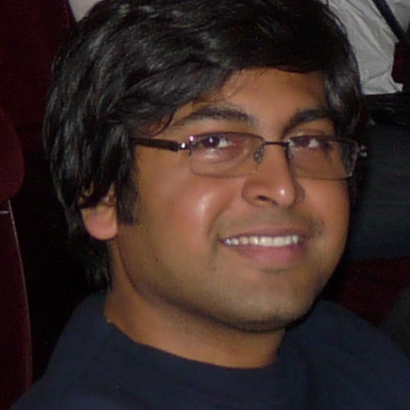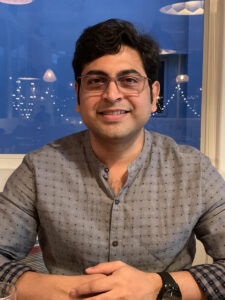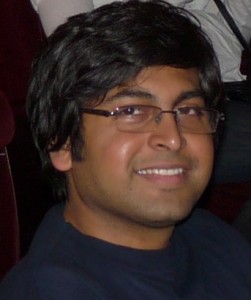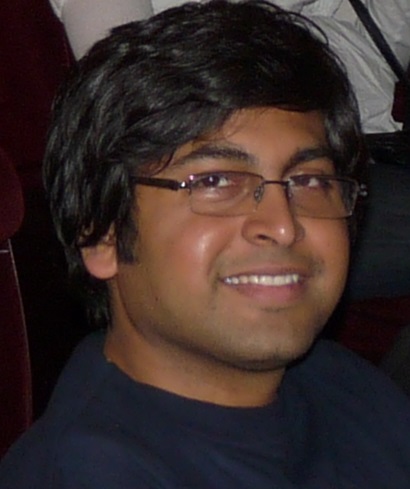
POETRY LIFE AND TIMES AN INTERVIEW WITH PRABHU IYER
by Sara L Russell for Poetry Lifetimes & Poetry Life & Times
Brief biographical sketch
Educated in India and England, Prabhu Iyer writes contemporary rhythm poetry. He counts the Romantics and Mystics among his influences. Among modern poets Neruda and Tagore are his favourites for their haunting and inspirational lyrical verse. He lives and works in Chennai, India, where he has a day job as an academic scientist. Some of his poems can be found athttp://hellopoetry.com/-prabhu-iyer/. In 2012, he self-published ‘Ten Years of Moons and Mists’ at Amazon Kindle: http://www.amazon.com/Prabhu-Iyer/e/B008F8M0JS. Reach him at twitter @iyerprabhu, facebook.com/prabhuiyerpage
The Interview – as recorded in November 2014
Sara: What first made you start writing poetry, Prabhu?
Prabhu: Firstly, I wish to thank you and PLT for featuring me in your widely regarded journal, I’m very grateful for this indeed! Coming to this question, I have to answer in stages. It all began years ago as a child, when I read the English Romantics at school – Tennyson, Wordsworth, Keats. At home, education was highly regarded and both parents were particular that we learned the languages, particularly English, well – my mother’s prized possessions included an old bounded Oxford English Dictionary and a Wren & Martin Grammar which her father had used. My father is a great admirer of Wordsworth and ‘Daffodils’ is his favourite poem, which even today as he fondly recollects, he narrated to an audience when he was still at school! The ecstatic works of classical Indian poets, were an early influence too, chief among who was our national poet, Kalidas, whose transformation from an illiterate shepherd to the most revered poet in Sanskrit language by the grace of the Goddess was often told and retold. Popular poetic hymns by mystical philosophers were recited in our family on all occasions.
In this atmosphere, I took to poetry almost naturally, as a way of expressing myself. The idyllic surroundings I had the blessing of growing up in (Hyderabad was a small town in the 80’s and my father’s official accommodation provided an island of peace, nestled in fields, gardens and open spaces) deeply inspired me. Later in teens and early twenties, poetry was my way of capturing all the angsts of growing up – from first crushes to rebellion and all sorts of emotional fluff. In recent years poetry has also become the vehicle to manifest my inspirations, quest for beauty, and activism
on various causes: sustainable development, condition of women, and freedom of thought and religion. Although English was and remains the main medium in which I write, when I started, I would also write in some Indian languages, including Telugu and Hindi.
Sara: Who are your favourite poets of the past?
Prabhu: To start with, English Romantics influenced me the most – I really enjoyed reading poems by Kipling, Tennyson, Wordsworth. These poets seem from an era so different now, but their work is refreshing till today, even considering the sentimentalism they often displayed. Who is not fond of quoting Keats as ‘a thing of beauty is a joy forever…’, and although I majored in science, I cannot recollect something more vividly than studying ‘La Belle Dame sans Merci’ and ‘Ode on a Grecian Urn’ at high school. Perhaps my fascination for these figures is tied culturally, as the Indian poetic tradition itself is quite often lyrical, sentimental – even melodramatic – and mystical.
Among the Indian mystical poets, I really admire the moving compositions of Meera, the medieval Rajput saint-princess. Through Whitman, Frost, and (Ogden) Nash, I discovered the American moderns, and later, Plath and Bukowski. Of late, I have been studying the work of the avant-garde poets, Ezra Pound, Rainer Maria Rilke, the poetical cubism of the French poet Pierre Reverdy and the mystical future-poetry of Sri Aurobindo. My all-time favourites though, are Pablo Neruda and Ranindranath Tagore – and whenever I am down I get to reading ‘20 love poems and a song of despair’ or ‘Geetanjali’, books that I think will remain timeless for their stirring, evocative lyrical style.
Sara: What contemporary or classic style do you tend to use the most, in your poetry?
Prabhu: I mainly write rhythm poetry, where any traditional elements such as rhyme or alliteration come about as natural features of the verse. More often than not I tend to follow a free rhythm structure, and this to my surprise, I’m discovering, is again a feature of much of Indian vernacular poetry. Lyrical poetry is closest to my style, although, I’d like to call this abstract impressionism, (after the impressionist movement whose leading figure was Monet), in the tradition of Tagore and Neruda. Here’s an excerpt from the poem, ‘Why shouldn’t I’, illustrating my writing in this form:
… Dawn mingles with your ruddy cheeks;
Peasant woman, I read the language of toil in the wrinkles on your brow.
Why should I love you? I ask of myself.
This is the constant soliloquy of the monsoon rain in empty valleys.
What do you brood over on sultry noons?
But then, why shouldn’t I? Winter’s witheration is everybody’s lot. …
This is the particular style that readers have appreciated me most for. I’m also keenly interested in the poetical meanings and interpretations of other art movements such as cubism, surrealism, and magical realism – exploring them as suited to different purposes. I find Surrealist techniques to be a wonderful way of introducing a sense of mystery, marvel and disjointedness into poetic settings: here is an example excerpted from my poem, ‘The edges of awareness’, where I’ve used Montage:
How do I know. Splattered across. Misty spiral halos. Dark dark dark. I drew a handful. I saw stars. Gone –
ancient light. Who is the witness? Canvas of life painted.
Cubism provides a template to throw intense light on a subject, bringing in various shades of meanings and ideas, helping to deconstruct and allow the reader to re-synthesize something deeply meaningful and symbolic, as for instance, in my take on the death of Indian cities:
The urchin banging at the windscreen on rainy nights,
The old house down the road making way for another high-rise,
The cobbler at the corner store smiling away toothless
The now-glorified mausoleum of the rebel from past –
The aquarium where water dried up and all the fish died;
I am the city that you don’t see dying, obsessed with ‘progress’.
Being the major art and literary movement of our generation, represented by such powerful voices as Rushdie and Marquez, and carrying a powerful resonance for post-colonial native cultures, Magical Realism of course has a major attraction. I find this to be one of the most difficult genres to write in, but a good grasp allows a superlative use of allegory and fantasy to create really intense experiences for the reader. An example excerpted from the ongoing series, ‘Mr K’s Life’:
…In the morning, he worships the Eye in his shrine. Upholding traditions, one must get ahead in life. Half-believing, within ‘Bounds of reason’ tepid; The Eye sits observing him: sometimes, staring from the sky above, and some times, through
the eyes of the beggars lining the temple street. Irāvāṇ laughs as Mr. K walks past the totem pole.
I also like to experiment on the lines of the avant-garde poets, especially, Ezra Pound’s ingenious use of irregular spacing (for ex: see Pound’s ‘In a station of the metro’) to convey an unsettling view (excerpted from my recent poem, ‘Escape, refuge’):
On a shore flooded in the tide. Now on a flitting log:
Rain, trying to fill up the ridges white, that, I, along with
crabs, snails and tiny starfish, are ambling to escape from.
Sara: I saw that you have a new book on amazon; “Ten Years of Moons and Mists”. Is there a special theme running through this book?
Prabhu: Thanks for asking, this was an anthology of poems I collected and published (with illustrations by my wife Tamaswati Ghosh (who is also an avid photographer and artist) during a break in the summer of 2012. It was a culmination of a decade’s journey, and as such was very important for me, as it allowed me to collate, summarize and set aside the work from that period and then move on to newer ideas, themes and projects.
The over-fifty poems in this book chronicle the journey of my growth and self-discovery through my twenties, and are organized into three sections, ‘Love’, ‘Despair’ and ‘Light’. In a way the title foreshadows this, the moon standing for both love and light, and mist for the many challenging times when these are blocked from our vision. Each section starts with a piece which I thought would capture the essence of the mood best, after which poems are presented in the chronological order in which they were first written. This I hoped would allow readers to relate to and locate the changes
taking place through my journey over the decade. This book records some of my first love poems, disappointments at difficult moments, ruminations and visions.
Sara: There are many love poems in your book that particularly appeal to me, such as “At the Altar of Love“; also “Accept in Return” and “Unusual Gift”. How much has love influenced your poetry over the years?
Prabhu: I would say, very strongly indeed. There was, in my poetic journey, a time when I wanted to make my poems more grounded in everyday experience and widen their breadth and appeal. Ultimately I discovered – and perhaps most poets do too – that I had to mine my own experience and distil something of that into my verse – this is what Neruda and Tagore did. As the great American realist artist Edward Hopper observed, ‘Great art is the outward expression of an inner life in the artist, and this inner life will result in his personal vision of the world’ [see ‘Statement’, 1953, Reality journal]. Unless an emotion experienced is real, and makes an impact on the inner life of the poet, it cannot be captured and conveyed perfectly enough. And love is an emotion we all experience – that’s how I began to consciously write love poems; but then I also discovered, there are many shades of love, and not just a monotone of mush. I wanted to capture this and took notes as I went along.
And thus the poems in the collection came about: there are here, some of my favourite romantic poems – quoting, for example, from “At long last”:
…It rained as we sat down under the shelter of tall, loving, wise trees,
The drizzle still managing to get us from the sides:
We shrunk our clothes for warmth, but
You still held your hand out for me to see what fate had in store for you.
Unknown to me, she had slipped past into my heart and whispered from there,
And I wanted to say, ‘fate says you are mine’. …
As are some feisty pieces, quoting for example, from ‘I know you are angry’:
…There is mellow love.
There is also a searing love, fierce like red clouds
In the black winter evening sky…
Some dark, wistful ruminations, for example, from the poem ‘Does it matter?’:
You die every day, like this: you choose a life of slow
death: through long nights, you burn away
like the slowly fading lamp
mourning some sombre memory,
does it matter to know, you love me?…
Then, there’s mystical love too, for example from ‘the Lamp of hope’:
…I have adorned the insides of this my small hut,
With flowers of best fragrance: this day, like on
So many past ones, I plucked ’em finest, from
Love’s labour, in the garden of life; longing for Kanha:
When will he come drive this unreal light away? …
And of course, plenty of lyrical poetry, for example, from ‘She has no name’:
…I became one with fallen leaves and rustled in wind
on lonely summer afternoons when death visits life
I became the mynah and sang back to the cuckoo
with crickets and allied insects for chorus
on tired evenings, mad in their unquenchable quest
I became birds that dart to the setting sun…
Sara: I enjoyed reading your poem “St Paul’s Cathedral”. You write of it with great warmth. Did you spend a lot of time exploring national monuments while you were living in London?
Prabhu: Yes, in general, I admired the way Britain has tried to preserve her heritage. Every listed monument or site is well-kept, visitor-friendly and welcoming, and resources and information are shared in dedicated online pages. I visited sites in London many times over: British Museum (and also the Science and Natural History museums), Trafalgar Square, V&A, Royal Albert Hall, the Tower of London and London Bridge and the other bridges over Thames. Often there is some bit of Indian history connected to many of these places and that was also of much interest to me – for example, among the Royal Jewels displayed at the Tower of London is the Koh-i-noor, a diamond that was originally mined in Hyderabad. I would always cast a brooding glance at the column dedicated to Admiral Nelson at Trafalgar Square when passing by on a bus or walking, as this is connected to Waterloo and Napoleon Bonaparte (who is looked at somewhat favourably in some Indian historical traditions).
Whenever I had friends or family visiting – and someone or the other was always visiting London for the first time – I would insist on taking the open-top bus tour together with the brief journey by motorboat at Embankment. Madame Tussaud’s and the London Eye were particular favourites, along with Buckingham and Princess Diana’s palaces. In addition to these, I loved the Hyde Park and the Serpentine Lake, as they were just a small walk from Imperial (where I studied), and which I frequented almost daily for quiet musings.
England and London have influenced my poetry deeply, and the London Eye, Hyde Park and Gunnersbury Park (at Ealing) and Thames at the Embankment are themes that I often revisit in a symbolic sense in my verse. Here are some examples: From ‘Where the Lee bends’, inspired by memories of a walk by the Thames:
…landing now by the memory lane:
by the Thames, holding a palmful by the bank,
saying, this river is named after you:
she has a dimpled smile;…
From ‘Hidden doors’ written after viewing ‘Hortus Conclusus’ by Peter Zumthor at the Serpentine Gallery in Hyde Park, London
Behind the apparent hues of violet and pink
And many shades of green:
Magical doors to distant places in happier times;
I jumped in and leapt out as a child…
From “At long last”, inspired by a memorable incident at the Gunnersbury park:
…The shades of white which the birds that accompanied us
As we walked past that pond by the temple to the Deity of Love
On that serene mid-October Sunday morning sported;
It rained as we sat down under the shelter of tall, loving, wise trees…
From ‘Takeoff’, a surrealist poem based on many visits to the London Eye:
…Giant eye of the fair: the same phantasm
emerging, enlarging, dimming, receding;
Hall of dreams in a castle of darkness:
waves of events playing out again and
in smoke and shadows amid resounding…
I visited the National Arts Gallery at Trafalgar Square often and enjoyed learning about the history of art and art movements. Tate Modern at Southbank was another venue that I liked to visit, and there I learned much about modern art movements, and also at the Serpentine Gallery in Hyde Park. A visit to Tate Modern prompted me to create my first art-poem exploring the theme of concept-art (quoting from ‘Modern Art’):
Half-a-commode….
salvaged from
construction-site debris, in an enclosure;
Corrugated tin…
inverted containers,
shop-floor seats, hollow from the inside;…
Outside of London, Windsor was one of my favourite places to visit, and along with it being the seat of the Royal Family, the Castle was also of great interest to me as there are, on display there, some relics of Indian kings, including those of Tipu Sultan of Serigapatnam. I’d visited other places of historical interest such as Dover Castle associated with the D-Day landings and medieval Cathedrals and Castles at many English towns and cities such as Cambridge, York, Derby, etc. Visits to the Roman complex at Bath, the Stonehenge and viewing a copy of the Magna Carta at the Salisbury Cathedral were memorable experiences too.
Sara: In the section of the book called “Despair”, your poems are more wistfully reflective than self-pitying; which I like. In “Late Summer Evening”, for example, you write of the landscape around you, as well as your own emotions. Were some of these sadder poems difficult to write, in terms of emotions you felt at the time?
Prabhu: Indeed, some of them were very difficult to write. Often, poems were just lines recording the raw emotions of the time, picked and pruned into verse much later. Others arose by way of reflection on events of the past – maybe I’m given to morose self-reflection somewhat like the evening sky in London! – but it was important for me to record the moments. I used to keep a journal for many years recording happenings of the day, every day.
Sara: Do you feel that poetry can sometimes be therapeutic, in exorcising the demons of sorrow and despair? Or can it sometimes intensify negative feelings as you read it back to yourself?
Prabhu: Absolutely! To me the poems were a record of an inner journey. In some meditative practices we are encouraged to reflect on the events of the day every night and think of how to improve ourselves. To me, this poetic reflection has similar purposes and effects.
Almost always, putting down the feelings in word at the experiential moment helps to assuage and soothe the heart. And revisiting them later has a cathartic effect. In fact re- examining old maudlin verse also helps gain an objective view of emotions, for example when you record something like this: (from my poem, ‘On the shores of my inner life’)
On the shores of my inner life I kneel
Unable to stand anymore, unable to stand
Waves of remorse, boisterous seams,
Hit harder each time
…and as you look back years later, you wonder how you were this much of a wreck back then! This too is a form of healing – realizing the transitory nature of emotions. As they say, we have to be able to see that both pleasure and pain are emotions, and in the ontological sense, they are on equal footing, as experiences imposed on the experiencer. Pain affects us deeply, because we don’t want to experience this emotion – we are naturally conditioned to avoid this – but it is indeed a natural process to experience it in life as are other emotions. Coming to terms with, re-examining, expressing and reviewing such emotions is certainly therapeutic.
Sara: Have you ever made, or thought of making poetry videos, perhaps reciting in the background of a film of a landscape, or speaking to web cam at home?
Prabhu: Actually so far, I have not explored performance poetry. I’m still camera-shy and worry about proper punctuation, intonation and recitation. Having said that, I have, in recent years, seen poetry performances by you and other poets on the PLT network; and that is inspiring. The poet may be the person best placed to read out her work as she is aware of the emotional journey the words have taken. Pauses and punctuations acquire more meaning when recited directly by the creator of a work.
Sara: Finally Prabhu, what are your ambitions for the future, in terms of writing?
Prabhu: Thanks for asking this, I guess answering this question will also help me in sifting and organizing my plans and goals for myself. In the immediate sense I would like to further hone my skills in poetical and literary techniques that can convey a more enjoyable, dramatic and tangible experience to the reader. Feeling, imagination, inspiration and ekphrasis are perhaps very important parts of this process. For instance, I would like to create more works such as this ekphrastic piece I wrote just recently (from ‘Ekphrasis on a Monet’) using a poetic interpretation of the Surrealist Montage method:
boatman Purple haze
contemplative pouring
the sky as lone
rides the horizon.
islanding
into the lake,
Going forward, I want to complete some of my pending writing projects – I’ve been working on my first fictional novella and also collecting poems for further volumes of poetry. I dream of melding poetic and prose styles of description within the framework of magical realism. ‘Moons and Mists’ also, perhaps, require a revision and a second edition is due and I hope to release it on other platforms such as Lulu – a print edition would be wonderful too!
In the longer term, I wish to emerge as an authentic voice of the people in the way that Tagore and Neruda were, and be able to create poetry that people can relate to and is meaningful to their lives. In a sense this is also very challenging today, as the world has become very different – life runs at breakneck pace, and there is hardly any time to parse and digest ideas, memes and concepts. I identify myself as a poet first more than as a story teller, but I am often told, even by friends, ‘I’m not into that (poetry)’. Also, today the world is in strife, with violence and extremism on the rise, but we don’t have answers. Ideologies and creeds have failed and people are searching for meaning.
I want to take stirring, dramatic and lyrical poetry with meaning to the people, but wonder how I could do this in an era of instant consumption and vanishing attention spans! Maybe all poets of this generation face this challenge and perhaps we have to use creative routes to achieve this. Visual and performance poetry, lyrics for songs and popular music (some of the best loved songs are also great poems) could be an important channel. Perhaps, gaining a name in prose writing can help in appealing to people’s interest in the author’s other writings such as poetry. Perhaps, minimalist poetry in styles such as the Japanese Haiku and Tanka have a better chance of gaining access to the distracted mind and planting a seed for further discovery. Let me end this conversation with a Haiku I wrote recently:
In autumn’s decay,
beauty, constant companion,
and in springs of hope.
Sara: Thanks very much for the interview, Prabhu.
Prabhu: Thanks, indeed, for speaking to me and giving me this wonderful opportunity to share my thoughts and work! I’m very grateful to you and PLT, and I express my appreciation for the invaluable service you are doing to the cause of poets and poetry through your journal!



